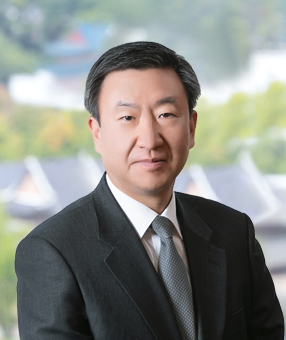On March 24, 2021, the National Assembly passed an amendment to the Financial Investment Services and Capital Markets Act (the “FSCMA” and such amendment, “Amendment”) to substantially overhaul the Korean private fund regulations. In particular, the Amendment eliminates the existing system of classifying private collective investment vehicles (or “private funds”) by management purpose and instead regulates the funds solely based on the type of investors which the funds target. The Amendment will take effect on October 21, 2021.
The details of the Amendment are as follows, and we have prepared a list of Q&As regarding the application of the amended FSCMA to existing private funds.
1. Reclassification of Private Funds
-
Consolidation of private fund types: new distinction between “institutional private funds” and “general private funds”
Under the current FSCMA, private funds are classified into two categories based on the investment objective of the fund: (i) management participation (i.e., private equity funds or “PEFs”) and (ii) private funds for qualified investors (i.e., hedge funds for non-management participation), and each classification is separately regulated. In order to serve as a general partner of a PEF, the company is required to register with the regulators as a general partner, and in order to serve as the management company for a private fund/hedge fund, the company is subject to more stringent eligibility requirements and required to be registered as a private asset management company (“Private AMC”). The Amendment removes such classification and instead distinguishes between “institutional” private funds (which are funds sold to institutional investors) and “general” private funds.
The main implication of this change is that existing general partners of PEFs will be permitted to establish and manage institutional private funds, while existing Private AMCs will be permitted to establish and manage general private funds.
New market participants may apply for registration to manage either institutional private funds or general private funds, the latter being subject to more eligibility and ongoing compliance requirements.
|
Q: Does a previously registered PEF or PEF manager need to register again?
|
-
Increase in the maximum number of private fund investors
While the current FSCMA and sub-regulations limit the number of actual investors in a private fund to a maximum of 49 investors, the Amendment relaxes this limit to 100 investors. However, the specific method of calculating the number of investors will be set out in the Presidential Decree, and the number of non-professional investors (who are in need of greater protection) is still limited to 49.
|
Q: How does the regulation on applications affect each type of investor?
|
-
Consolidation of investment management regulations
Currently, different sets of regulations apply to PEFs and non-PEFs (hedge funds) in order to ensure that such funds are managed in compliance with their respective objectives. However, the Amendment removes such distinction and eases the regulations as follows:
| Type | Current | Amendment |
| Management participation investment obligations |
|
|
| Limits on voting rights |
|
|
| Borrowing |
|
|
| Loans |
|
|
|
Q: Do the same regulations apply for mutual investment-restricted business groups or funds?
|
-
Changes in regulations for institutional private funds
Since institutional private funds can only be sold to classified institutional investors, the Amendment eases some of the existing regulations including:-
Management personnel requirements for registration of general partners: Currently, there is only a minimum personnel requirement to register as a general partner of the PEF. The Amendment introduces a qualification requirement by adding “certain investment management experts designated by the Presidential Decree.”
-
Audit by regulatory authorities: The Amendment provides that general partners, in addition to institutional private funds, may be subject to FSC measures or audits by the Financial Supervisory Service (the “FSS”) in case it is “necessary for the stability of the financial market and transaction order.”
-
|
Q: Do general partners previously registered as PEF management members also have to meet the qualifications for investment management experts under the registration requirements? |
2. General Private Fund Regulations Strengthened for Investor Protection
There have been a number of high-profile incidents involving certain local private funds which resulted in substantial losses to investors. As a result, the Amendment introduces certain investor protection measures applicable to general private funds.
-
Private AMCs are required to prepare “key product disclosures” (but not a full offering memorandum) and provide them to potential investors through distributors. The distributors are required to verify that the content of the key product disclosures is consistent with the fund documents (i.e., collective investment agreement).
-
Even after the sale of the general private funds, the distributors are required to confirm that the Private AMC’s management conforms to the key product disclosure. Should there be a nonconformity, the distributors are required to request that the Private AMC rectify its management activities.
The reinforcement of the regulations discussed above, along with the introduction of new regulations relating to financial consumer protection, is expected to bring substantial changes to the business environment of financial companies (such as distributors and trustees).
|
Q: Are previously established specialized private funds subject to the regulations that reinforce investor protection? |
Conclusion
With the Amendment, the regulatory framework related to private equity funds has been significantly reorganized. Therefore, relevant parties should familiarize themselves with the changes and prepare in advance for requirements subject to grace periods, including investment management personnel requirements. They should also review whether to amend their internal regulations and business guidelines to strengthen investor protection. In addition, closely examining the legislative trends of the Enforcement Decree and its subordinate regulations (e.g., the scope of limited liability partners of private equity funds for institutions) may be necessary.
Related Topics
#Private Equity Fund #Hedge Fund #Private Equity #2021 Issue 2 #Newsletter












